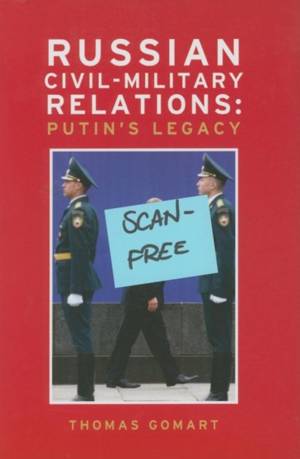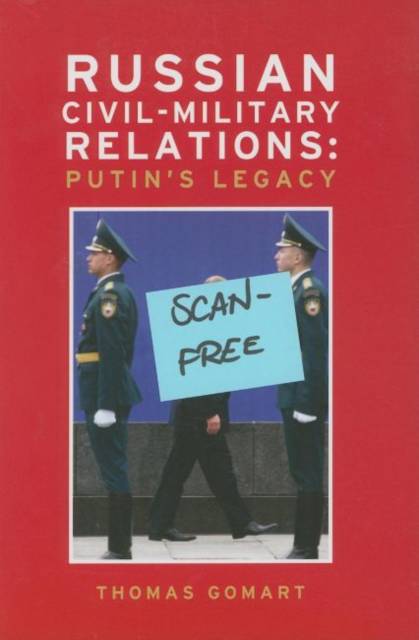
- Retrait gratuit dans votre magasin Club
- 7.000.000 titres dans notre catalogue
- Payer en toute sécurité
- Toujours un magasin près de chez vous
- Retrait gratuit dans votre magasin Club
- 7.000.0000 titres dans notre catalogue
- Payer en toute sécurité
- Toujours un magasin près de chez vous
Description
This perceptive and well-informed study highlights the continuity of the Russian (civilian and military) security community's distrust of the outside world, fueled by NATO enlargement. Communism may be dead in Russia, but the obsession with 'threats' continues, rallying the population and keeping security elites in power. This makes Russia an uncomfortable world player to live with. A must read.--Beatrice Heuser, professor and chair of International Relations, School of Politics and International Relations, University of Reading (UK)
As Russia reasserts itself on the international stage, the relationship between its civilian and military spheres remains one of the determining factors in the organization of political power. Thomas Gomart's Russian Civil-Military Relations: Putin's Legacy looks beyond traditional dualism between the Kremlin and the military, introducing the role of the security services in Russian power distribution. With the support of the siloviki (security service) and justification through the fight against international terrorism, Putin worked throughout his administration to reestablish presidential control over the military. As Russia transitions to Dmitry Medvedev's presidency, it is important to not only review the Putin presidency, which has given many of the country's institutions their shape, but also to reach back further into post-communist and Soviet history for an understanding of the realities of today.
Russian Civil-Military Relations provides crucial analysis of the nature and evolution of the balance between civilian and military institutions. These relations will continue to influence regime development, security policy, and societal attitudes that build from Putin's Russia to Medvedev's administration and into the future.
Spécifications
Parties prenantes
- Auteur(s) :
- Editeur:
Contenu
- Nombre de pages :
- 120
- Langue:
- Anglais
Caractéristiques
- EAN:
- 9780870032417
- Date de parution :
- 20-01-22
- Format:
- Livre broché
- Format numérique:
- Trade paperback (VS)
- Dimensions :
- 150 mm x 224 mm
- Poids :
- 226 g

Les avis
Nous publions uniquement les avis qui respectent les conditions requises. Consultez nos conditions pour les avis.






